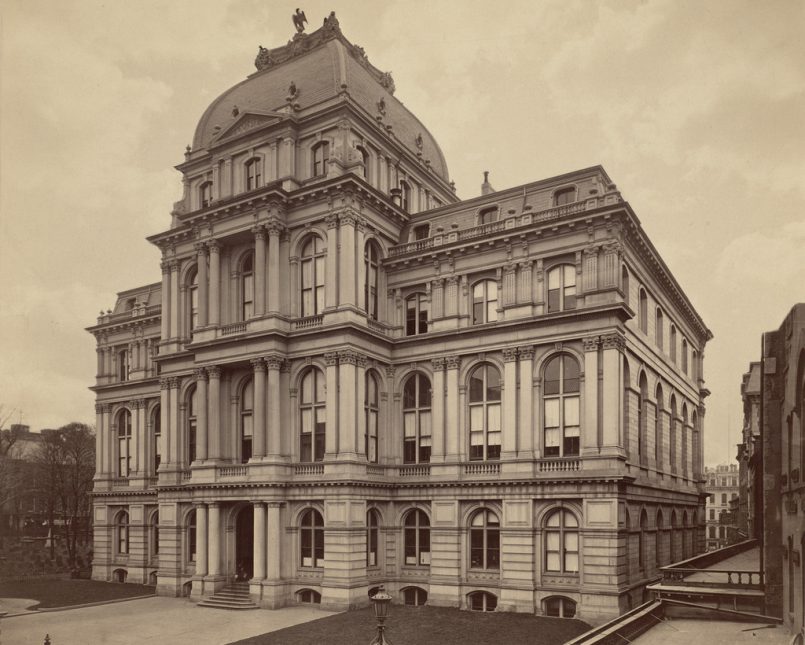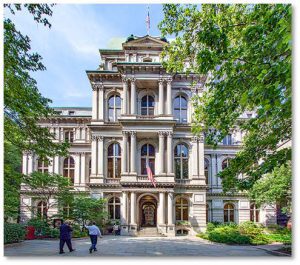
May 17, 2017 A New Era at Boston’s Old City Hall
The board of the Boston Planning and Development Agency (BPDA) recently voted to accept the sale of a long-term lease for the City-owned Old City Hall at 45 School Street in Boston from the non-profit Architectural Heritage Foundation (AHF) to Synergy Investments for $30.1 million.
The transfer removes the Architectural Heritage Foundation (AHF) from its long term 99 year lease obligation after 47 years of management of the city owned structure, a relationship that was considered one of the most creative and financially sustainable means of preserving a surplus historic building in 1970 when AHF assumed responsibility for its rehabilitation and management as an office and retail complex. In exchange for the long term lease, AHF paid the former Boston Redevelopment Authority a percentage rent annually on its leases, a function presumably adopted by the new lessee.
 The first purpose-built city hall for Boston, Old City Hall was constructed in 1865 in the Second Empire style that was popular briefly in the US until the 1870s. Architect Gridley J.F. Bryant designed the structure. He was also the architect for Quincy Market with his mentor Alexander Parris, and was chief designer of the Old Boston City Hospital and the second addition to the Massachusetts State House.
The first purpose-built city hall for Boston, Old City Hall was constructed in 1865 in the Second Empire style that was popular briefly in the US until the 1870s. Architect Gridley J.F. Bryant designed the structure. He was also the architect for Quincy Market with his mentor Alexander Parris, and was chief designer of the Old Boston City Hospital and the second addition to the Massachusetts State House.
Bryant designed Old City Hall to replace the former Suffolk County Courthouse which was built here in 1810 by Charles Bulfinch and converted to Boston’s City Hall in 1841. It is also the site of Boston’s (and the nation’s) first public school, Boston Latin School, was established in 1635. With construction of the New City Hall in 1969, the City made plans to dispose of the historic structure.
A thriving restaurant and commercial office structure, Old City Hall is a beloved Boston icon today that also demonstrates how historic buildings can be adapted to modern circumstances. Over the years AHF has undertaken similar rehabilitation projects in other parts of Boston and the Commonwealth including Washington Mills in Lawrence and the Charles River Speedway headquarters in Allston. The BPDA states that a portion of the sales proceeds, $5.3 million, will constitute a historic preservation fund for deployment in other projects in Boston.
For more information, visit the BPDA here.



